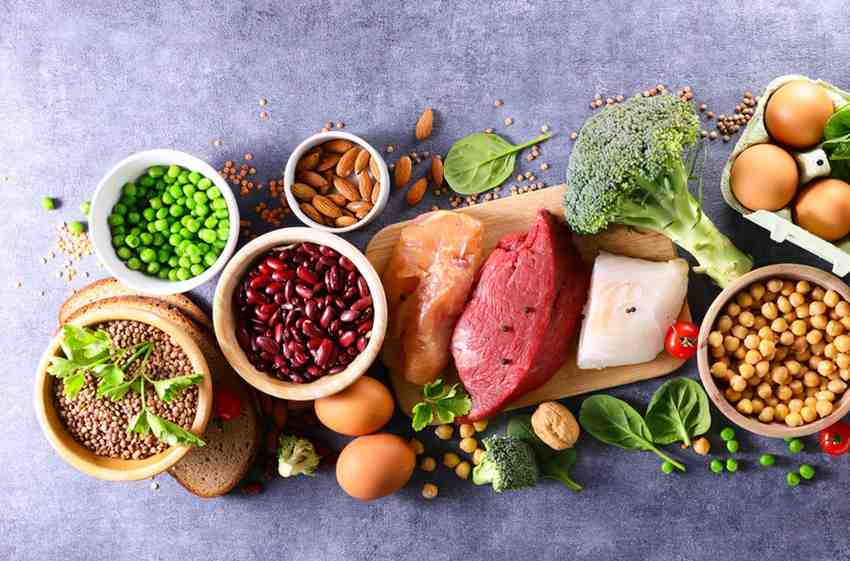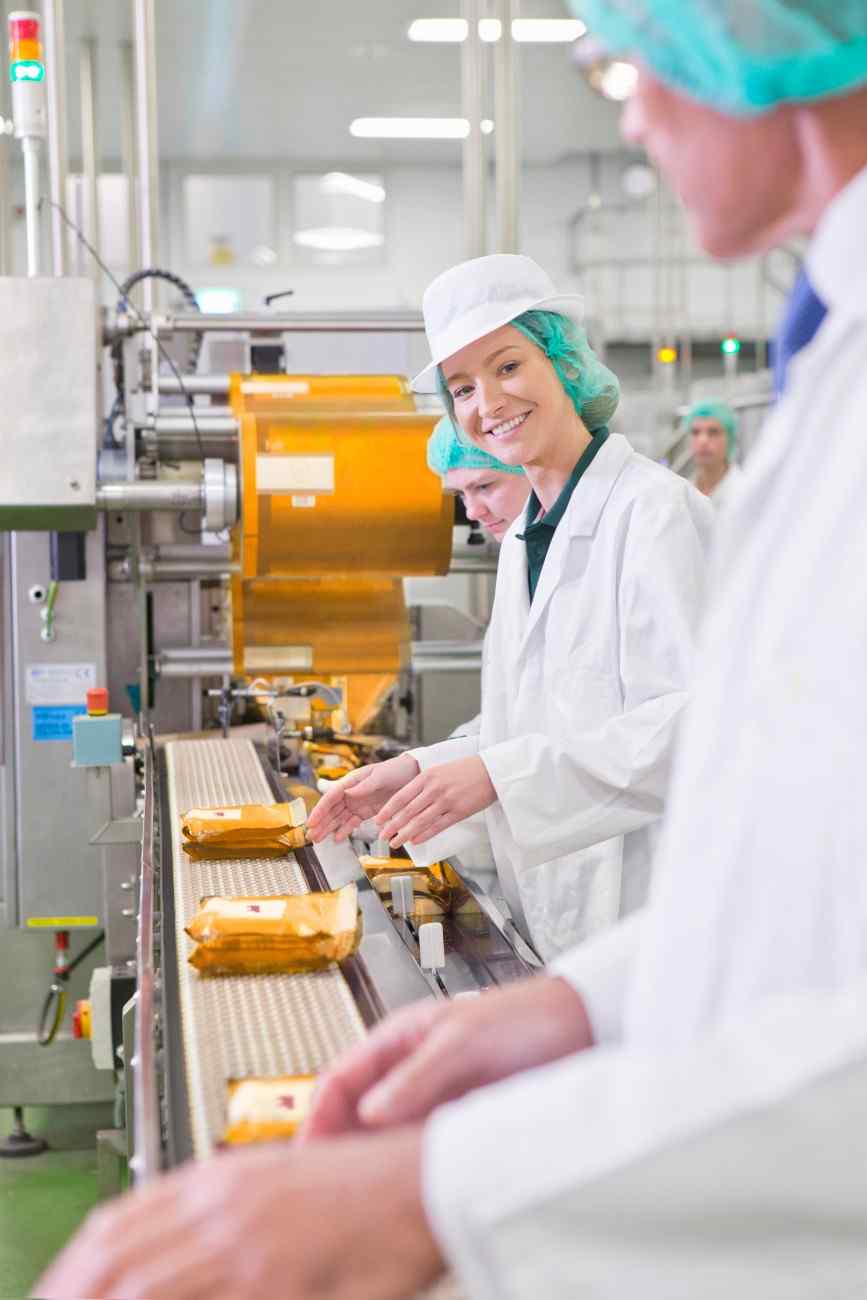Last Updated on November 26, 2025 by Admin
Table of Contents
- What is Food Sustainability?
- What Is A Sustainable Food System?
- What is Sustainable Food Production?
- Why is Food Sustainability Important?
- Sustainability Practices Related To Food
- Benefits Of Food Sustainability
- Food Sustainability and Climate Change
- Food Sustainability Challenges
- Individuals and Communities’ Contributions
- Final Thought
At this time, the world is facing an ever-growing population, climate challenges, and limited resources. In its production and consumption of food requires proper attention due to public health concerns. This brings us to the idea of sustainable food, which aims to meet the growing needs of people while addressing very real issues, including concern for the environment, nutrition, food availability, economic structure, etc. But why does “food sustainability” hold so much importance in today’s world?
This article will define the keyword sustainable food systems, benefits attached with it, tackling major challenges revolving around food sustainability alongside interconnecting its relevance with climate change and socio-economic imbalance.
What is Food Sustainability?
Sustainability has three key facets–environmental care, social equity, and economic viability, each with its unique goals. Collectively protecting nature while consuming responsibly yields a fruitful outcome, but upon closer examination, it can easily become exhausted without proper foresight and planning elements, such as how to arrange it sustainably so that deprivation doesn’t occur.
Essentially, what food sustainability is trying to achieve is an optimal balance of environmental system integrity, social equity, and economic development working together harmoniously to sustainably feed the world.
What Is A Sustainable Food System?
A sustainable food system preserves and supports the effective production and consumption of food while conserving natural resources, minimising local greenhouse gas emissions and fostering a health-promoting diet within the region.
In other words, what is a sustainable food system? It has every component in the entire supply chain from farm to table work collaboratively towards enhanced environmental protection, social responsibility and economic productivity.
Strengthen climate and economic resilience while utilising agricultural practices that protect biodiversity through greater access to healthy foods, lower waste, increased community engagement or empowerment through fostering sociological diversity.
What is Sustainable Food Production?
Terms like sustainable food production are affiliated with agricultural activities that support soil health through lowering water usage, chemicals, as well as ecosystem damage, like organic farming or regenerative agriculture (sometimes even integrated pest management) or agroforestry.
By refining further what makes sustainable food production, we can prioritise essential aspects such as eco-friendliness instead of monoculture-driven yields, which existed decades ago freely without consequence. It should be about sustaining them, nourishing all, while nurturing nature across global communities on a population scale responsibly.
Why is Food Sustainability Important?
To grasp the significance of food sustainability, one must look at it from local and global perspectives. Below are some important points:
- Environmental Impact: Agriculture contributes significantly to deforestation, greenhouse gas emissions, and water pollution. Sustainable agriculture helps mitigate these impacts.
- Food Security: Nutrition-rich foods need to be readily accessible to increasing populations worldwide.
- Economic Stability: Local sustainable food systems strengthen rural economies and decrease reliance on imported foods.
- Public Health: Offers reduced risk of foodborne diseases while promoting consumption of better-quality health-supporting foods.
- Climate Resilience: More flexible to weather extremes and ecological disruptions.
The answer to the question, “why is food sustainability important?”, focuses towards survival in defending the environment, safeguarding our economies, and most importantly, ourselves.
Sustainability Practices Related To Food
Achieving a balanced and resilient food system hinges on adopting the right methods regarding practices concerning food sustainability, such as:
- Crop Rotation and Soil Management: Maintaining soil fertility and reducing pests naturally.
- Water Conservation Techniques: Drip irrigation, rainwater harvesting, and reduced wastage.
- Reducing Food Waste: At the consumer, retail, and production levels.
- Local and Seasonal Eating: Supporting regional farmers and reducing carbon footprint.
- Animal Farming: Ensuring humane treatment and minimising environmental harm.
- Sustainable Packaging: Employ biodegradable or recyclable options to reduce the amount of waste in landfill sites.
- Ethical Animal Farming: Providing proper care to livestock while temporarily protecting biodiversity and the ecosystem.
Undoubtedly, these implemented food sustainability practices enhance environmental conservation, community/health wellbeing, and bolster economic growth.
Benefits Of Food Sustainability
There is a range of devastating underlying issues pertaining to unsustainable practices adopted by the civilisations, which include but are not limited to inadequate environmental necessities and social imbalance. Some renewables reconstruct these desperate practices into our society, which provides renewable raw materials, leading to economic opportunities that are extremely helpful.
1. Environmental Benefits
- Diagnostic GHG emissions.
- Acceleration in eco diversity.
- Preservation of water resources and soil granules.
- Reduction in the detrimental climate activities.
2. Economic Advantages
- Supports local agriculture and small farmers
- Lowers long-term food production costs
- Builds resilient supply chains
3. Health and Social Perks Today
- Encourages equitable food access
- Enhances community health through nutritious diets
- Creates job opportunities in green sectors
The collective benefits of food sustainability underline its necessity in global food policy and grassroots-level practices alike.
Food Sustainability and Climate Change
The relationship between food sustainability and climate change is direct and urgent. Agriculture contributes roughly one-quarter of global greenhouse gas emissions, yet it’s also among the most vulnerable sectors to climate change.
- Extreme Weather: Floods, droughts, and changing seasons affect the yield of crops and the availability of food.
- Carbon Footprint: Emissions are caused by industrial agriculture, transportation of goods, and waste disposal.
- Mitigation Role: Farming practices that are more sustainable help to mitigate climate change by capturing carbon and lowering fossil fuel dependency.
To summarise, addressing both climate change and food sustainability is important. Effective responses to climate change can be built into sustainable food systems, enabling them to serve as a buffer or an adaptive response in a warming world.
Food Sustainability Challenges
There are noticeable benefits; however, there are also some still prominent gaps in the sustainability framework, identified as the food sustainability challenges:
1. Industrial Farming Dominance
Large-scale monoculture farming degrades ecosystems as it focuses on only profitability while neglecting ecological balance and sustainability, all resource-harmful practices aimed toward maximum output without regard for sustainability principles.
2. Access And Affordability
It’s difficult to access lower-priced, sustainably produced foods as the cost is higher due to high demand worldwide, making it unaffordable for low-income dwellers.
3. Policy Gaps
Consumer-friendly policies that support sustainable food production do not exist or provide insufficient funding, which reinforces systemic barriers within sustainable agriculture, reliant on lacking comprehensive guidelines.
4. Consumer Behaviour
There’s inertia associated with adopting new diets involuntarily, where patients need thorough instruction about diet diversity using comprehensive plans targeting construction work at various levels.
5. Infrastructure Problems
Transportation problems paired with inadequate transport significantly increase global food loss, especially in developing countries.
Addressing these multi-dimensional challenges requires clear political commitment across all levels – from local neighbourhood initiatives up towards international governance frameworks, focused on improving ground-level actions, promoting collaboration alongside authoritative structures, and implementing solutions into practice.
Individuals and Communities’ Contributions
Developing sustainable food systems requires more than policymakers or farmers to take action; it also includes consumers. Their contribution includes:
- Purchase Seasonal and Local Foods: Supports economies on a local level while lowering carbon emissions.
- Minimise Food Waste: Estimation of meals, composting food scraps, and proper storage of food all contribute towards waste minimisation.
- Support Ethical Brands: Look for certifications that endorse Fair Trade, organic products, or Rainforest Alliance-approved merchandise.
- Educate and Advocate: Policy advocacy, along with spreading awareness, fosters more sustainable actions.
Every meal choice made inside the restaurant, grocery shop visit or kitchen is impactful toward the food system.
Read Also: Food Technologist: Role, Skills & Career Guide
Final Thought
Understanding food sustainability is essential in shaping a healthier, more equitable, and environmentally resilient future. Whether you’re learning about what a sustainable food system is, exploring what is sustainable food production is, or facing the reality of food sustainability challenges, the goal remains clear: to create a system that feeds everyone, without harming our planet.
By adopting responsible food sustainability practices, we not only reduce our ecological footprint but also contribute to food security, economic fairness, and climate action. From individuals to institutions, every stakeholder has a role to play.
The time to act is now. The stakes are high, but so are the opportunities. Let’s invest in a future where food sustainability and climate change are not adversaries but parts of a single, harmonious solution. Check for food safety training programs for more information.













